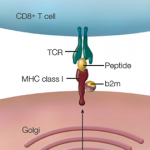“Physicians may be more reassured that their patients with spinal symptoms may well improve in that important clinical domain when treating PsA,” he says.
“Inhibition of IL-23 with guselkumab has been shown to effectively treat the multiple clinical domains of PsA: peripheral arthritis, enthesitis, dactylitis, skin and nail disease, spine pain, and fatigue – yet with virtually no safety issues of note,” Dr. Mease explains. “There was no signal for malignancy, thrombophlebitis, herpes zoster, opportunistic infection, inflammatory bowel disease, and minimal signal for serious infection.”
In a commentary accompanying the study, Laura C. Coates, PhD, of the University of Oxford, U.K., notes that, “Studies addressing the efficacy of different therapies in axial psoriatic arthritis are of high importance for treatment guidelines and for daily clinical practice. Current treatment guidelines in psoriatic arthritis rely largely on the results of studies in primary axial spondyloarthritis. Evidence of efficacy in axial PsA would certainly affect not only the guidelines but also the choice of appropriate treatment options in individual patients.”2
Dr. Mease says that Janssen, which sells guselkumab, plans to conduct a clinical trial focused on axial PsA, with serial magnetic resonance imaging (MRI) and clinical assessment.
Janssen Research and Development LLC funded the study. Both the study authors and Dr. Coates have financial ties to the company.
References
- Mease PJ, Helliwell PS, Gladman DD, et al. Efficacy of guselkumab on axial involvement in patients with active psoriatic arthritis and sacroiliitis: A post-hoc analysis of the phase 3 DISCOVER-1 and DISCOVER-2 studies. The Lancet Rheumatol. 2021 Jun 29. Online first.
- Coates LC. How should we define disease and outcomes in axial psoriatic arthritis? The Lancet Rheumatol. 2021 Jun 29. Online first.



